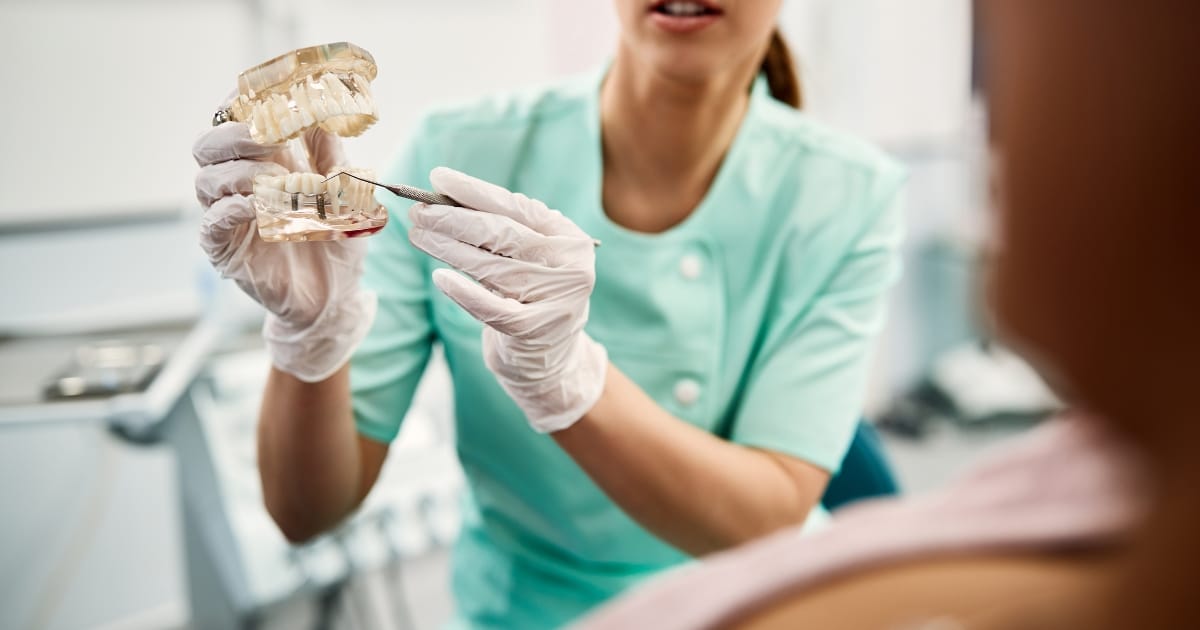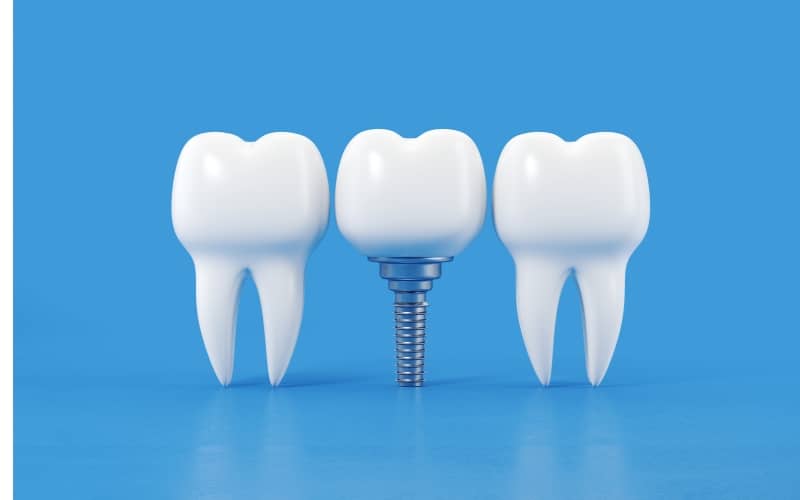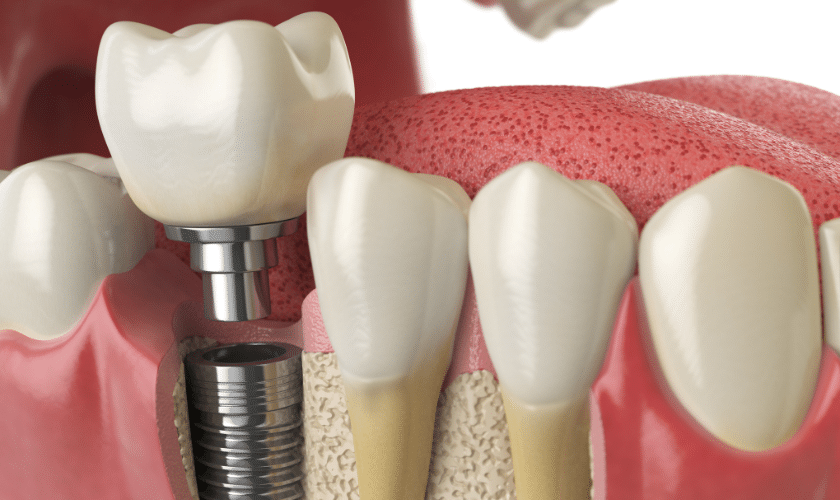
Caring for your dental implants properly is crucial for their long-term success and your oral health. While dental implants are extremely durable and can last decades with proper care, they require some aftercare and maintenance from you as the patient. Don’t worry; with diligence and working closely with your dentist in Allen, TX, your dental implants can continue looking and functioning like natural teeth for years. Read on as we detail the aftercare steps needed for dental implants, including what you should do immediately after your procedure, how to clean dental implants correctly when to schedule follow-up appointments, signs of complications to watch for, and more tips for protecting your investment in your smile.
The Dental Implant Procedure
Dental implants in Allen, TX, are a popular and effective way to replace missing teeth and restore your smile. If you are considering implants, it helps to understand the implant procedure. Below is an overview of the step-by-step process.
- Initial Consultation: The first step is to consult with your dentist. They will examine your mouth and use X-rays to assess your jawbone density, the space needed for the implant, and oral health. This helps determine if you are a good candidate for implants.
- Tooth Extraction: If needed, dentists will replace any damaged or non-restorable teeth with implants. This also is done if an existing bridge needs to be removed to place the implants.
- Jawbone Evaluation: Your dentist will evaluate the health and mass of your jawbone at the implant site. If bone density is low, dentists will recommend a bone grafting procedure to build up the bone before placing the implant.
- Incision and Place Implant: After numbing the area, your dentist will make a small incision in your gums to expose the bone. They will precisely drill a socket into the bone using surgical tools to anchor the implant device. Then dentists will insert the implant (usually titanium) into the socket.
- Healing Time: Your gums are stitched closed and given time to heal, generally from 3-6 months. This allows the jawbone to grow around the implant and integrate it firmly into the bone, creating a strong foundation. Temporary replacement teeth may be worn during this period.
- Abutment Attachment: Once healed, a small second procedure is done to open the gums and attach an abutment (connector) to the implant. This abutment will hold your new crown, bridge, or denture. An impression is taken to create your custom restoration.
- Crown Placement: In a follow-up visit, your dentist in Allen, TX, will place the artificial crown, bridge, or denture precisely onto the abutment(s). With the restoration securely attached, your implant tooth replacement looks, feels, and functions like natural teeth.
- Your dentist will advise you on your implants’ exact timeline and details at each visit. Proper planning helps ensure dental implants are placed successfully.
Dental Implant Aftercare Tips And Instructions
Understanding the Initial Phase
The first few days of post-implant surgery demand extra attention and care. Your dentist will provide postoperative instructions, which you have to follow properly. A diet of soft foods is advisable during this period to avoid unnecessary pressure on the implants. Maintaining oral hygiene is paramount; however, gentle care is key. Rinsing your mouth with a saltwater solution can aid in keeping the surgical site clean without irritating it.
Long-Term Oral Hygiene Practices
After implant surgery, avoid brushing around the surgery site, but keep brushing and flossing your other teeth as normal. After your gums have healed, brush and floss around the implant crown or bridge like natural teeth. It is normal to experience some sensitivity, discomfort, and swelling for a week or two. Using an ice pack, you can minimize swelling on your cheek. Over-the-counter pain medication can relieve discomfort.
Dietary Considerations
While dental implants are robust, certain dietary adjustments can contribute to their prolonged success. Avoid excessively hard or sticky foods that exert unnecessary pressure on the implants. Crunchy vegetables and fruits should be sliced into bite-sized pieces to prevent strain. If you’re a chronic teeth grinder, consider using a mouthguard to safeguard your natural teeth and implants, especially during sleep.
Lifestyle Choices Impacting Implant Health
Certain lifestyle habits can influence the longevity of your dental implants. Smoking, for instance, poses a significant risk, as it can impede the healing process and increase the likelihood of implant failure. Similarly, excessive alcohol consumption can compromise the body’s ability to heal efficiently. Adopting a well-balanced lifestyle contributes to the health of your implants and your overall well-being.
Embracing Regular Follow-ups
Even if your dental implants seem pristine, regular follow-up appointments with your dentist in Allen, TX, are indispensable. These appointments involve a comprehensive examination, possibly including X-rays, to assess the implant’s stability and the health of surrounding tissues. Early detection of any issues allows for proactive measures, ensuring your smile remains flawless.
Caring for your dental implants properly after the procedure is just as important as the surgery’s long-term success. While dental implants are incredibly durable when placed by a skilled dentist in Allen, TX, they require diligent aftercare and maintenance from you as the patient. Follow all of your dentist’s postoperative instructions closely, practice excellent oral hygiene daily, come in for all recommended check-ups and cleanings, and don’t hesitate to call your dentist with any concerns. With a dedication to dental implant aftercare, your implants can last for decades and boost your confidence with a smile you love.
Be sure to discuss aftercare with your dentist in Allen, TX, before the procedure so you know exactly what to expect and how to protect your investment. With proper care for your new dental implants, you’ll continue enjoying their benefits, like natural-looking, durable replacement teeth that function just like your own – something to smile about!









